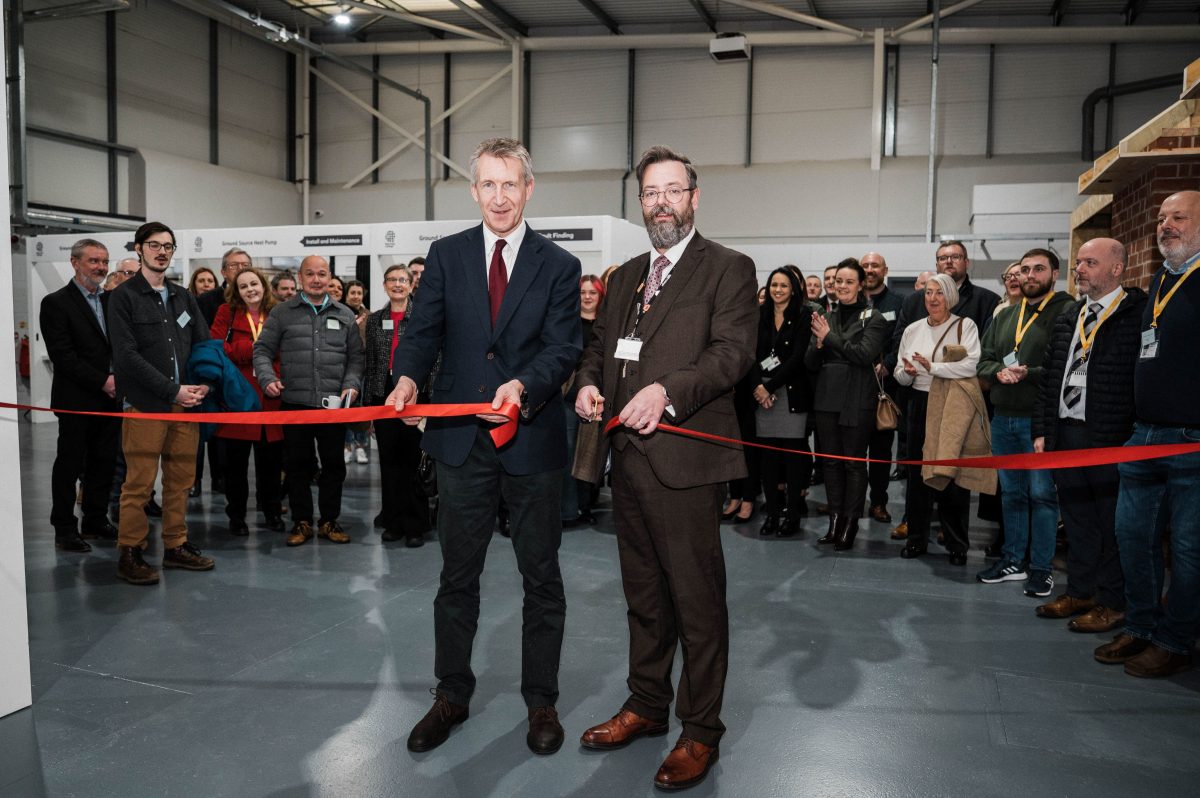Make the Apprenticeship system fit for purpose: Utilities demand more from Apprenticeship Levy

Six key actions to address skills challenges, boost UK productivity and meet the needs of a changing UK workforce
In September 2019, the Secretary of State for Education in England, Gavin Williamson called Apprenticeships “one of the greatest successes of the government.” The key to achieving this has been employer leadership. Employer-led reforms have been introduced primarily through Apprenticeship Standards, End Point Assessment and the Apprenticeship Levy.
Energy & Utility Skills, the leading skills and assurance membership organisation for the Energy & Utility sector, today (16 Dec) published a comprehensive review into the delivery and effectiveness of Apprenticeship reforms, as the sector works to renew and up skill its workforce to deliver the government’s Net Zero ambition and the £0.6 trillion National Infrastructure Plan.
The work forms one part of its workforce renewal and skills strategy to ensure that the gas, power, water and waste management industries has the human capital required to deliver environmental infrastructure and essential services to nearly 67 million UK consumers. The independent ‘Test and Adjust’ report for Energy & Utility Skills, undertaken by former Chief Executive of the National Apprenticeship Service, sets out six reforms to improve the Apprenticeship Levy.
The employer-led review was independently written by Professor David Way CBE, a leading figure in UK skills and Apprenticeships. The report found the energy and utilities sector – which is of high strategic importance to government plans to boost UK productivity and will invest more than £100bn in the economy – has made the policy reforms deliver high quality workers but further adjustments are needed.
Employers have played a pivotal role in driving up standards and quality, but while there is strong sector commitment and much is working well, further adjustments are needed to make the Apprenticeship system fit for purpose.
Despite being the first sector to introduce and successfully implement Apprenticeship Standards under the new arrangements, the industry is still losing out through a significant under spend of available funds. The report calls for six key actions to address the sector’s skills challenges, boost UK productivity and meet the needs of a changing UK workforce delivering the country’s vital infrastructure.
The ‘Test and Adjust’ report calls for six key actions:
1. Filling the funding gap
The predicted funding shortfall for Apprenticeships must be transparent. Any funding gap should be filled by a combination of increased public funding and lowering the payroll threshold to below £3m for employers who contribute to the Apprenticeship Levy. Public funding offers a proven healthy return for the UK economy.
2. Linking Apprenticeships to the Industrial Strategy
Success should be about more than the number of Apprenticeship starts, it should be linked to outputs and productivity. The sector calls for a change in approach to ensure critical skills delivery is incentivised, quality is increased and not undermined by funding cuts.
3. Sector training pot
Unspent Apprenticeship Levy funds are returned to treasury. The sector askes that Levy funds are retained within the sector to create a flexible ‘sector training pot’ to be used for tackling skill challenges and enhancing productivity. Employers in the energy and utilities sector are currently losing up to £2.5million a month of unspent Levy
4. Employer leadership
The employer-led approach must be extended to all parts of the Apprenticeship system. Employers know best when it comes to the skills and knowledge required in their businesses. This is tested at the end of the Apprenticeship programme by an Independent End Point Assessment organisation. Why then go back and check if 20% of their time was spent on ‘off the job’ training? Employers need to have more control over how their apprentices are trained.
5. UK wide approach
Over half of the sector’s employers operate across the UK’s four nations, delivering services to around 67 million UK-wide customers. Every company in England must pay the Apprenticeship Levy based on their UK PAYE bill. However, it is only directly available to fund apprentices in England. In the other 3 nations it is passed back to their governments. This often leads to employers having to pay twice for Apprenticeship training. It is not uncommon for companies operating across the 4 nations to have cohorts of apprentices on two different Apprenticeship programmes. The sector calls for a coherent UK-wide framework that works for employers and apprentices
6. From T-Levels to Apprenticeships
The industry is positive about the introduction of T-Levels but calls for more transparency and detail on the pathways from T-Levels to Apprenticeships and employment. The sector is keen to see T-Levels and Apprenticeships working as one continuous process.
 Nick Ellins, Chief Executive of Energy & Utility Skills, said:
Nick Ellins, Chief Executive of Energy & Utility Skills, said:
“The energy and utilities sector employs over half a million people, generates 5% of GDP and contributes £51m annually to the Apprenticeship Levy pot. They set the standard in delivering successfully against the policy reforms and from the start sought to positively help the government to ‘test and adjust’ its approach.
“This report from Professor Way, sets out clearly for the incoming government, where to adjust the reforms to bring immediate benefits and policy success. Too much time is being spent focusing on the Apprenticeship Levy as an end in itself, what matters is the quality of the talent that emerges into the economy and society, and how effectively the system works for the employers who foot the bill.”
 Report author, Professor David Way, CBE, said:
Report author, Professor David Way, CBE, said:
“Employer-led reforms to the Apprenticeship programme are beginning to bear fruit, especially by improving quality. This will be vital for future productivity growth and for the expansion of the Apprenticeship programme.
“The Apprenticeship Levy has not yet had the transformational impact on employer investment in skills training that Ministers were looking to achieve. However, employers are now familiar with the systems and are steadily increasing the proportion of their Levy payments that they are able to use.
“By extending the employer-led approach to all parts of Apprenticeships and ensuring employers see the Levy arrangements as fair and transparent, there is every prospect that we will see the growth in high quality Apprenticeships that will drive the productivity increases needed for the UK to compete in the global economy.”
Nick Ellins concluded: “The Apprenticeship reforms have brought undeniable benefits to the employers in our sector, and they wish to accelerate the gains being made by identifying and embedding reforms that will work for the incoming government and for business. Their track record of turning theory into practice makes them a tried and tested partner for government. It is time to step back, draw breath, talk candidly, target the resources and efforts to maximum effect and use this insightful research to help Apprenticeship policy progress to support the needs of the whole UK economy”
About the report: The review is the product of survey results from employers across the energy and utilities sector; discussions with the sector’s Apprenticeship and Technical Education Advisory Group (ATEAG); research that has been commissioned by Energy & Utility Skills.











Responses